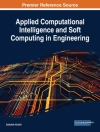Previous research on fixed/finite-time sliding-mode control focuses on forcing a system state (vector) to converge within a certain time moment, regardless of how each state element converges. This book introduces a control problem with unique finite/fixed-time stability considerations, namely time-synchronized stability, where at the same time, all the system state elements converge to the origin, and fixed-time-synchronized stability, where the upper bound of the synchronized settling time is invariant with any initial state. Accordingly, sufficient conditions for (fixed-) time-synchronized stability are presented. These stability formulations grant essentially advantageous performance when a control system (with diversified subsystems) is expected to accomplish multiple actions synchronously, e.g., grasping with a robotic hand, multi-agent simultaneous cooperation, etc. Further, the analytical solution of a (fixed) time-synchronized stable system is obtained and discussed. Applications to linear systems, disturbed nonlinear systems, and network systems are provided. In addition, comparisons with traditional fixed/finite-time sliding mode control are suitably detailed to showcase the full power of (fixed-) time-synchronized control.
Inhaltsverzeichnis
Introduction.- Time-Synchronized and Fixed-Time-Synchronized Stability.- Time-Synchronized Control for Affine Systems.- Time-Synchronized Control for Disturbed Systems.- Fixed-Time-Synchronized Control for Affine Systems with Singularity Avoidance.- Fixed-Time-Synchronized Control for Disturbed Systems with Singularity Avoidance.- Fixed-Time-Synchronized Control with the Least Upper Bound of Synchronized Settling time.- Time-Synchronized and Fixed-Time Synchronized Consensus of Network Systems.- Time-Synchronized and Fixed-Time Synchronized Robotic Grasping Control.
Über den Autor
Dongyu Li received the B.S. and Ph.D. degree from Control Science and Engineering, Harbin Institute of Technology, China, in 2016 and 2020. He was a joint Ph.D. student supported by China Scholarship Council with the Department of Electrical and Computer Engineering at National University of Singapore, where he is currently a research fellow with the Department of Biomedical Engineering. His research interests include networked systems, human-robot interaction, and intelligent control systems. He has published more than 30 academic papers, and has served/been serving as an Associate Editor of the 15th International Conference on Intelligent Unmanned Systems, the 10th International Conference on Social Robotics, and an active reviewer of many international journals and conferences. He won the National Scholarship for Ph.D Students and received the Excellent Reviewer Award of Science China in 2019 and 2020, respectively.
Shuzhi Sam Ge is professor in the Department of Electrical and Computer Engineering of the National University of Singapore, director of Social Robotics Lab and Smart Systems Institute. He received BSc degree and MSc degree from Beijing University of Aeronautics & Astronautics in 1986, and received his Ph.D. degree and Diploma of Imperial College in Mechanical/Electrical Engineering from the Imperial College in 1993. Since 1993, he has been with the National University of Singapore. He is a Fellow of IEEE, IFAC, IET and Singapore Academy of Engineering.
His research interests include but not limited to social robotics, intelligent systems, and intelligent equipment. He was the recipient of Inaugural Temasek Young Investigator Award (2002), Defence Science and Technology Agency (DSTA) and National Technology Award of the National Science & Technology Board (2002), NSFC National Outstanding Youth Award (2001) and IEEE Control Systems Society Distinguished Member Award (2013). He has (co)-authored 7 books, and over 800 international journal and conference papers, with high H index (82) and citations (27, 000). He is Clarivate Analytics (former Thomson Reuters) high-cited scientist in 2016-2018, Elsevier high-cited scientist in 2014-2018.
He serves as Vice President of Technical Activities (2009-2012), and Vice President of Technical Activities (2009-2010), Member of Board of Governors (2007-2009), Chair of Technical Committee on Intelligent Control (2005-2008) of IEEE Control Systems Society. He was the recipient of Changjiang Guest Professor at MOE in China (2008). He has completed a number of national projects across universities, research institutes, and industries in Singapore. He is the founder and editor-in-chief of ‚The International Journal of Social Robots‘ (Springer Press) and deputy editor of ‚Automatica‘. He serves as an Associate Editor for a number of flagship journals including IEEE Transactions on Automatic Control, IEEE Transactions on Control Systems Technology, and IEEE Transactions on Neural Networks, Book Editor of Taylor&Frabcis Automation and Control Engineering Series. He served as General Chair and Program Chair for a number of IEEE international conferences.












